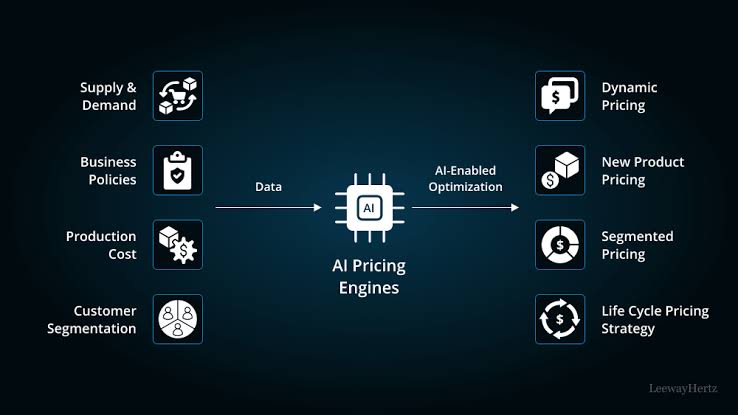In 2025, AI for pricing optimization is no longer just about competitive benchmarking—it’s about understanding context, demand signals, buyer psychology, and performance outcomes. These ten tools are redefining how businesses think about value, competition, and profitability
As of June 2025, the world of pricing optimization has become more intelligent, data-driven, and responsive than ever before. Artificial intelligence is no longer a luxury for pricing strategists—it is a necessity. With the rapid growth of ecommerce, dynamic competition, supply chain volatility, and personalized marketing, companies are turning to AI tools that can help them make precise, real-time pricing decisions across products, regions, and customer segments. Below is a comprehensive and human-written breakdown of the top 10 AI-powered pricing optimization tools dominating the industry in 2025.
10. Omnia Retail
Omnia Retail is a leading European platform focused on dynamic pricing for retailers and brands. As of 2025, Omnia offers AI models that automatically adapt prices based on competitor activity, inventory levels, and market demand. The tool’s strength lies in its real-time repricing capabilities and customizable pricing rules. It allows marketing and merchandising teams to run experiments without sacrificing margin. Omnia also supports multi-country and multi-channel strategies, making it ideal for ecommerce brands operating across Europe and beyond.
9. Zilliant
Zilliant is a B2B-focused pricing and sales optimization platform that leverages AI to provide actionable pricing recommendations. In 2025, Zilliant’s Intelligent Automated Negotiation feature has become a game changer for manufacturers and distributors, enabling price personalization for large customer accounts. The platform combines sales history, market trends, and inventory signals to propose optimized quotes in real time. Its integration with CRM and ERP systems like Salesforce and SAP makes it a seamless tool for complex enterprise environments.
8. Prisync
A favorite among small and mid-sized ecommerce stores, Prisync continues to stand out with its affordable and easy-to-use interface. The platform tracks competitor prices and stock status, then uses machine learning to suggest or automate price updates. In 2025, Prisync introduced AI-powered demand forecasting and segment-based pricing, allowing stores to push different prices to different customer groups based on behavior. For Shopify, WooCommerce, and Magento users, Prisync provides a powerful plug-and-play pricing engine that doesn't break the bank.
7. PROS Smart Price Optimization
PROS has long been a heavyweight in the airline and travel industry, and its Smart Price Optimization solution is widely adopted across industries in 2025. It uses AI and deep analytics to model willingness-to-pay, demand elasticity, and seasonality. The platform continuously learns from buyer behavior and adjusts prices dynamically for both B2B and B2C markets. PROS also excels in what-if simulations, letting revenue teams test pricing strategies in a risk-free environment. It's especially effective in industries like hospitality, logistics, and enterprise software.
6. Pricefx
Pricefx is a cloud-native pricing optimization suite that has gained considerable traction among large enterprises. As of 2025, it offers a range of AI modules for competitive pricing, promotion planning, rebate management, and pricing analytics. Pricefx has also embraced generative AI to help teams auto-generate pricing scenarios, deal terms, and executive reports. Its modular structure allows businesses to start small and scale gradually, while its real-time pricing engine ensures pricing agility in fast-moving markets.
5. BlackCurve
BlackCurve specializes in pricing optimization for retailers and DTC brands, with a strong focus on usability and automation. In 2025, the platform offers demand-based dynamic pricing, automated margin protection, and customer behavior modeling. One of its standout features is its AI pricing audit, which alerts users to suboptimal prices across large catalogs. It also integrates with ad platforms to measure the impact of pricing changes on ad ROI. This holistic view makes BlackCurve a favorite among performance-driven ecommerce marketers.
4. NetRivals (now part of Lengow)
NetRivals is known for its powerful competitor price tracking and market intelligence. Since merging with Lengow, a leading ecommerce automation platform, NetRivals has expanded its pricing AI capabilities significantly. In 2025, it not only monitors thousands of competitors in real time but also applies AI to identify pricing gaps, seasonal trends, and product lifecycle opportunities. It is especially popular in sectors like electronics, fashion, and health products, where online pricing changes multiple times a day.
3. DynamicYield Pricing Engine
Originally known for its personalization and recommendation engine, DynamicYield has stepped into AI-driven pricing with a highly adaptive and context-aware solution. Its pricing engine in 2025 uses behavioral data, time sensitivity, device type, and even weather to personalize pricing at the user level. This hyper-targeted approach allows brands to capture higher margins while delivering more relevant experiences. It also syncs with loyalty programs and product bundling systems, making it ideal for omnichannel retailers and DTC companies.
2. Revionics by Aptos
Revionics continues to be a leading AI pricing optimization tool used by top-tier retailers around the world. In 2025, it provides advanced algorithms for markdown optimization, competitive price intelligence, and promotion forecasting. Revionics has expanded its machine learning capabilities to adapt pricing across regions, store types, and even product display zones. The platform's scenario testing and elasticity modeling help retailers hit the sweet spot between profit and volume. With its new integration with generative AI assistants, users can also explore pricing strategies through natural language prompts.
1. Talon.One
At the top of the list is Talon.One, which has evolved into the most flexible and advanced pricing and promotions platform in 2025. Originally a rules engine for loyalty and discounts, Talon.One now uses AI to personalize offers, optimize discount levels, and run predictive promotion simulations. What makes Talon.One truly powerful is its unified system that combines pricing, loyalty, referrals, coupons, and bundling into a single decision-making framework. Its real-time engine allows marketers to launch dynamic, performance-based campaigns that adjust based on engagement and conversion. Talon.One’s growing use in industries like gaming, travel, ecommerce, and fintech proves its unmatched versatility and intelligence.
